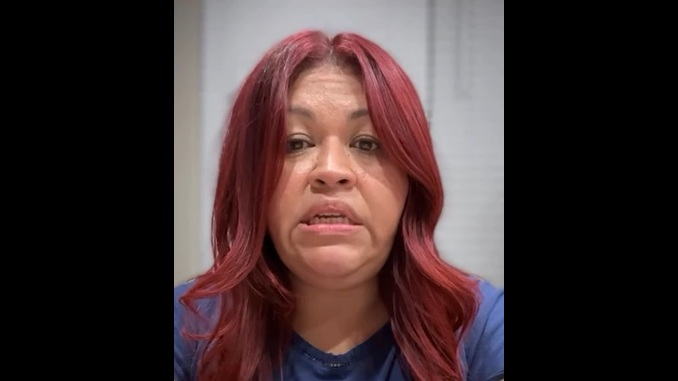
by Jonathan Eberle | Aug 24, 2025 | News
By Jonathan Eberle |
The Sedona City Council recently voted to indefinitely shut down the city’s automated license plate reader (ALPR) program after weeks of debate over privacy, surveillance, and public safety.
At a recent special session, council members Melissa Dunn, Kathy Kinsella, Brian Fultz, Pete Furman, and Derek J. Pfaff directed city staff and police to deactivate the 11 Flock Safety cameras already installed, with one additional device awaiting installation. Mayor Scott Jablow opposed the move, while Vice Mayor Holli Ploog was absent. Roughly 50 residents attended the meeting, at times voicing strong objections to the technology.
The decision halts Sedona’s partnership with Flock Group, Inc., which had equipped the city with ALPRs to scan and log vehicle license plates as part of law enforcement investigations. Until the shutdown, only Sedona Police Department Patrol Cmdr. Chris Dowell had access to the system.
Supporters of the technology argue that ALPRs provide a valuable investigative tool, helping law enforcement identify stolen vehicles, track suspects, and improve public safety. Dowell emphasized that the cameras were not designed for broad surveillance.
“ALPR is not a mass surveillance tool; it is a focused, objective investigative asset governed by strict data retention policies and transparency protocols,” Dowell said. He noted that data collected in Sedona was stored for 30 days and that “hot list” entries—license plates flagged for criminal investigation—required supervisory approval.
But critics say the cameras still sweep up information on every passing car, raising concerns that the technology could erode civil liberties. Flock representatives acknowledged that the system can capture more than just plates—such as bumper stickers or other vehicle features—details that, while seemingly minor, could reveal political beliefs or personal affiliations.
Groups like Privacy International define “mass surveillance” as any system that collects and stores data on individuals without suspicion of wrongdoing. Civil liberties advocates warn that such technology risks normalizing constant monitoring.
The debate in Sedona echoes national concerns. In Arkansas, one homeowner recently protested a Flock camera he said photographed his property and family members, sparking a legal debate over Fourth Amendment protections. Similarly, in Scarsdale, N.Y., local officials terminated their Flock contract after residents objected to what they described as an invasive surveillance system.
Following the decision, Sedona city staff were instructed to compile a timeline of how the program was approved, establish a citizen work group, and return with recommendations for a possible pilot program that balances safety with privacy protections.
For now, the cameras will remain in place but powered off, as the community considers whether their benefits outweigh the costs to civil liberties.
Jonathan Eberle is a reporter for AZ Free News. You can send him news tips using this link.

by Jonathan Eberle | Aug 24, 2025 | News
By Jonathan Eberle |
The Arizona Senate will host the concluding session of the Joint Legislative Ad Hoc Committee on Family Court Orders on Wednesday, August 27, at 9 a.m., with parents and families invited to share personal testimony about their experiences in the state’s family court system.
Committee Chairman Mark Finchem announced that the hearing, to be held in Hearing Room 1 at the State Senate, will feature testimony from the public alongside a presentation from the Arizona Department of Child Safety (DCS). The department is expected to outline its role in custody cases, child welfare matters, and its interactions with court orders.
Finchem emphasized that the hearing marks the culmination of a series of statewide meetings aimed at collecting information and input from Arizonans affected by family court proceedings. He said the committee intends to use the findings to guide potential legislative reforms during the next session.
“The final hearing is one you won’t want to miss,” Finchem said in a statement. “If you have been impacted by the family court system or a judge has threatened you with a gag order, I strongly encourage you to come forward and share your story. This is your opportunity to provide fact-based testimony directly to lawmakers before the committee concludes its work.”
In addition to public and agency testimony, the hearing will feature a guest speaker involved in federal family court reform initiatives. Organizers say this perspective will provide broader context on efforts to increase accountability and transparency in courts handling child custody and welfare cases.
Lawmakers on the committee have framed the series of hearings as an opportunity to define the oversight responsibilities of state agencies and ensure that the family court system is responsive to the needs of Arizona families. The session will run from 9 a.m. to noon.
Jonathan Eberle is a reporter for AZ Free News. You can send him news tips using this link.

by Matthew Holloway | Aug 23, 2025 | Education, News
By Matthew Holloway |
Controversy has once again embroiled Arizona State University (ASU), threatening the credibility of the institution, Arizona PBS, and the Walter Cronkite School of Journalism. Emails uncovered by the Arizona Republic reveal that ASU President Michael Crow, former Arizona Republic publisher Mi-Ai Parrish, and other officials allegedly favored Democratic gubernatorial candidate Katie Hobbs over Republican Kari Lake during the 2022 Arizona gubernatorial election.
Lake has accused them of “collud[ing] to prevent me from having a debate forum.”
Reporting from the Arizona Republic’s Stacey Barchenger earlier this month exposed internal discussions among ASU leadership that appeared to prioritize Hobbs while sidelining Lake. The emails, obtained through public records requests, show that Parrish emailed Arizona PBS leaders, writing, “We may have issues,” after discussions with PBS Senior Director of Content, Ebonye Delaney. They expressed concerns about equal time laws and the risk to ASU’s relationship with the Arizona Citizens Clean Elections Commission.
Crow emailed Parrish, stating, “Whatever the format there remains the fact that it is our venue and brand. We need structure…and format…….and….people who believe in elections as participants.” He later instructed his chief of staff, James O’Brien, and Parrish to “make sure you are both on the same page here,” prompting Parrish to ask, “What outcome are you seeking?”
ASU offered Hobbs a solo interview on Arizona PBS, a move that severed the university’s long-standing partnership with the voter-approved Clean Elections Commission. This decision was influenced by Crow’s reported disagreement with Lake’s views on election integrity and his labeling her an “election denier.”
Barchenger’s report, citing expert opinions, stated “That ASU leaders would consider one candidate’s views, and then reach down and influence television programming, called into question Arizona PBS’ independence as a news organization and its autonomy from university influence, experts said.”
“And it could have risked legal repercussions for Arizona’s largest university, they added.”
The Arizona Republic’s Robert Anglen shared the findings on X, writing, “Newly released emails detail how ASU’s top leaders sought to muzzle Kari Lake in 2022 for her election-denial views and give preferential treatment to Katie Hobbs on Arizona PBS during the governor’s race.”
Lake rejected Arizona PBS’s offer of a 30-minute solo interview, insisting on a joint debate with Hobbs. She told reporters at the time, “If she doesn’t appear with me, they should kick her out. If Democrats don’t have to sit on the debate stage with the Republicans, if they can just stomp their feet and demand a safe space … then we’ll never have a debate system again.” Lake instead participated in a Clean Elections-sponsored interview on another station and vowed to avoid PBS-related events.
In a statement responding to the exposé, Lake said: “Taxpayer-funded Michael Crow and taxpayer-funded ASU, along with taxpayer-funded PBS, colluded to prevent me from having a debate forum for fear I would talk about election fraud, and because their chosen candidate Katie Hobbs would’ve been destroyed in a debate with me. They interfered in the 2022 Arizona Gubernatorial election and trampled on my First Amendment rights. Their actions were not just unethical; they were likely illegal, too.”
ASU spokesman Jay Thorne defended the university’s actions, however, stating, “The shared objective of ASU and Arizona PBS after the gubernatorial debate was cancelled was to provide a forum for the voters of Arizona to hear from the two candidates for Governor in an interview format. It was an opportunity provided under identical conditions to each candidate, and only one accepted the offer.”
The controversy has raised serious questions about Arizona PBS’s journalistic independence and ASU’s impartiality. Crow, who received a contract extension with a pay raise and bonuses in 2024 despite prior scandals, faces renewed scrutiny over allegations of partisan interference in the electoral process. The decision to prioritize one candidate’s platform over another has sparked outrage and could have lasting repercussions for the institutions involved. This rewritten version organizes the information into clear sections, eliminates redundancy, and enhances readability while preserving all original quotes.
The Arizona Free Enterprise Club (AZFEC) announced August 20th that it has filed a Hatch Act complaint against ASU “for using taxpayer-funded resources to meddle in the 2022 Governor’s race.”
Scot Mussi, President of AZFEC, stated, “This was a blatant misuse of taxpayer-funded university resources to tilt the scales of a gubernatorial election. Arizona law is clear: universities must remain impartial and neutral in election-related activities.”
Matthew Holloway is a senior reporter for AZ Free News. Follow him on X for his latest stories, or email tips to Matthew@azfreenews.com.

by Matthew Holloway | Aug 23, 2025 | News
By Matthew Holloway |
Congressman Eli Crane announced that the U.S. Small Business Administration (SBA), under President Trump, is offering low-interest federal disaster loans to help businesses, nonprofits, and tribal nations recover from the devastating 2025 wildfires. The loans respond to the Dragon Bravo and White Sage fires, which scorched the Northern Rim of the Grand Canyon and the Kaibab Plateau in Northern Arizona.
The federal disaster declaration, issued by the SBA on August 13th, covers the Arizona counties of Coconino, Gila, Mohave, Navajo, and Yavapai, as well as the tribal nations of the Navajo Nation, Hopi Tribe, Havasupai Tribe, Hualapai Tribe, and San Juan Southern Paiute Tribe.
According to a press release from the SBA, “The loan amount can be up to $2 million with interest rates as low as 4% for businesses and 3.625% for PNPs with terms up to 30 years. Interest does not accrue, and payments are not due until 12 months from the date of the first loan disbursement. The SBA sets loan amounts and terms based on each applicant’s financial condition.”
The administration clarified that the Economic Injury Disaster Loan (EIDL) is available to eligible businesses, small agricultural cooperatives, nurseries, and PNPs with financial losses directly related to the disaster. However, the administration noted it is “unable to provide disaster loans to agricultural producers, farmers, or ranchers, except for aquaculture enterprises.”
The SBA explained that the purpose of the loans is “for working capital needs caused by the disaster, and are available even if the business did not suffer any physical damage. They may be used to pay fixed debts, payroll, accounts payable, and other bills that could have been paid had the disaster not occurred.”
As of this report, the Dragon Bravo fire has burned over 145,000 acres and is 62% contained. It has cut a swath of destruction from the north rim of the Grand Canyon northward along both sides of Arizona State Route 67 for about 12 miles and then along the east side of the State Route for nearly another twenty miles, leaving a scar almost 16 miles wide at its widest point.
The White Sage fire has burned nearly 59,000 acres and is 95% contained after spreading in a widening eastward arc from White Sage flat through the Kaibab National Forest toward Coyote Valley.
In July, Governor Katie Hobbs met with Trump administration officials, including Secretary of the Interior Doug Burgum, to coordinate with federal authorities on the Dragon Bravo wildfire, days after Congressman Paul Gosar (R-AZ09) joined a growing bipartisan coalition of Arizona leaders calling for an investigation into it. The fire claimed the historic Grand Canyon Lodge along with 50-80 other structures in the area in mid-July.
For more information about the SBA EID loans or to apply, please click here, call SBA’s Customer Service Center at (800) 659-2955, or email disastercustomerservice@sba.gov.
Matthew Holloway is a senior reporter for AZ Free News. Follow him on X for his latest stories, or email tips to Matthew@azfreenews.com.

by Matthew Holloway | Aug 22, 2025 | News
By Matthew Holloway |
Social media commentator Chaya Raichik’s Libs of TikTok account is calling for charges against current Phoenix City Councilwoman and former Arizona State Senator Anna Hernandez (D) after she allegedly posted a warning threatening the security of U.S. Immigration and Customs Enforcement (ICE) agents and interfering with their legal operations.
In a now-deleted post, screen-captured by Libs of TikTok, Hernandez allegedly wrote, “ALERT/ALERTA” and provided an address in Phoenix where ICE Agents were observed to be operating, along with the main cross streets. She wrote, “ICE IS PRESENT/LA MIGRA ESTÁ PRESENTE” and provided a phone number for a “línea de Defensa” or line of defense, which traces back to the Puente Human Rights Movement, an illegal immigrant advocacy organization.
Libs of TikTok wrote, “Anna Hernandez (D), a Former Arizona State Senator and current Phoenix Councilwoman, made a post on her Instagram doxxing ICE’s live location. She’s interfering with ICE and helping criminal illegals evade arrest. Charge her.”
In a follow-up video post to the platform, Hernandez advised her followers to “resist by:”
- “Demanding transparency from our new police chief
- Forcing MCSO to cut ties with ICE
- Investing in care, not criminalization
- Protecting each other at the neighborhood level”
She wrote that President Donald Trump “federalized D.C.’s police — even though violent crime is at a 30-year low. He deployed the National Guard, swept through historically Black neighborhoods, and targeted residents experiencing homelessness.”
She then claimed, “We’re already seeing PPD violate the rights of unhoused people and put immigrants at risk of deportation. A Trump takeover of PPD would only escalate this violence.
As recently as May, Hernandez was organizing demonstrations against ICE at Arizona’s federal immigration court in Phoenix, writing, “ICE is back, making arrests at Phoenix courts. Community with safe status, it’s time to stand up and make our voices heard!”
The allegations against Hernandez came just days after Homeland Security Secretary Kristi Noem was forced to relocate her personal residence due to increased threats to her person and family, along with “vicious doxxing,” described by a Homeland Security spokesman to Fox News.
“Following the media’s publishing of the location of Secretary Noem’s Washington D.C. apartment, she has faced vicious doxxing on the dark web and a surge in death threats, including from the terrorist organizations, cartels, and criminal gangs that DHS targets. Due to threats and security concerns, she has been forced to temporarily stay in secure military housing,” Assistant Secretary Tricia McLaughlin said.
“Secretary Noem continues to pay rent for her Navy Yard residence,” she added. “It’s a shame that the media chooses sensationalism over the safety of people enforcing America’s laws to keep Americans safe.”
In July, ICE officers reported a massive increase in assaults, according to a memo sent by U.S. Homeland Security, with extremist groups targeting ICE personnel and their families through similar coordinated doxxing.
Matthew Holloway is a senior reporter for AZ Free News. Follow him on X for his latest stories, or email tips to Matthew@azfreenews.com.

by Ethan Faverino | Aug 22, 2025 | News
By Ethan Faverino |
On August 6, 2025, the Food and Drug Administration (FDA) sent letters to manufacturers, importers, and distributors of unapproved animal-derived thyroid medications, notifying them of the agency’s intent to take enforcement action due to concerns over safety, potency, and dosing consistency.
These medications, derived from dried animals’ thyroid glands, are used by an estimated 1.5 million patients in the U.S. but are not FDA-approved, unlike synthetic alternatives like levothyroxine, which serve approximately 22 million patients.
The agency has allowed a 12-month transition period for patients to switch to FDA-approved medications.
Earlier this week, Congressman Abe Hamadeh (AZ-08) issued a formal inquiry to Dr. Martin Makary, Commissioner of the FDA, seeking clarity on recent agency actions that could restrict access to desiccated thyroid medications such as Armour Thyroid, NP Thyroid, Nature-Thyroid, and Natural Thyroid, which are critical for many patients managing hypothyroidism.
In his letter to Dr. Makary, Congressman Hamadeh emphasized the concerns of his constituents, particularly the veterans and seniors in Arizona’s 8th Congressional District, who rely on desiccated thyroid medications for effective treatment.
“Many of these patients have found desiccated thyroid medications to be more effective than synthetic alternatives for managing their thyroid conditions,” said Hamadeh. “Any disruption to their treatment regimens could have serious health consequences and undermine the doctor-patient relationship.”
Congressman Hamadeh requested that the FDA provide answers by September 5, 2025, to the following questions:
- What specific actions, if any, is the FDA taking regarding desiccated thyroid medications like Armour Thyroid?
- What evidence supports any potential restrictions on these long-established medications that have been safely used for decades?
- Has the FDA conducted a comprehensive analysis of how any restrictions would affect patients who rely on these medications?
- If restrictions are being considered, what steps will the FDA take to ensure patients maintain access to effective thyroid treatment options?
Congressman Hamadeh continued to state, “This issue reflects broader concerns about federal agency overreach into medical decisions that should remain between patients and their physicians. The FDA’s primary mission should be ensuring drug safety and efficacy, not unnecessarily restricting access to medications with established track records of safety and effectiveness.”
Dr. Makary has already responded to the backlash and public concerns via X (Twitter), stating that the “FDA is committed to pursuing the first-ever approval of desiccated thyroid extract, pending results of the ongoing clinical trials. In the meantime, we will ensure access for all Americans.”
Ethan Faverino is a reporter for AZ Free News. You can send him news tips using this link.






